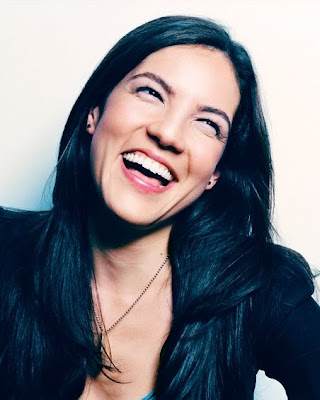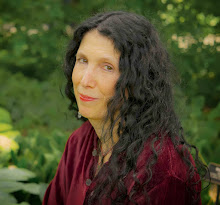It's always cause for celebration when a new indie bookstore opens and Novel Places is an especially brilliant one. Opened by the fabulously warm and well-read Patrick Darby, this is a store that is going to turn out to be a home away from home for many happy readers and writers. Come visit at 23341 Frederick road in Clarksburg, Maryland. I'm honored Patrick agreed to let me ask him all sorts of questions about his store. Thank you, Patrick!
I'm a huge fan of indie stories. What made you decide to open an indie store?
I've been in the bookselling business for 30 years, but always with chains and university stores. I was frustrated with the corporate attitude of selling, budget, and policy. After my father died, I came to the decision to do bookselling the way I always wanted to do it, which usually got me in trouble with headquarters. As a bonus, when I started Novel Places, my blood pressure dropped 20 points.
And how can I convince someone to open one in Hoboken, where I live? We're just a ten minute subway stop from Greenwich Village, but our bookstore closed a year ago.
They need to know that there's a lot of support in the community. Research will tell them about location and regional access. Find out exactly why the previous store closed. Like those of us opening new stores this year, we can see the hurdles and have plans to compete. Once they know the size and type of the store that can be sustained at the beginning, it's usually an easy choice. Type is very important. I started Novel Places almost 5 years ago. Lease deals fell through, and I ended up online and distributing to coffee shops. When I sublet in a coffee shop in Clarksburg, I quickly realized the mystery and children market needed to be tapped. The new store focuses heavily on children books and toys, but sells all categories, especially mystery.
I love that the book store was the first and the original building in Clarkesburg. So do you ever feel any sense of ghosts around?
The book store is in the original building of Clarksburg. It started out as a trading post, and eventually became a general store. There are no reports of hauntings, but the building has seen Clarksburg rise as the third largest town in Montgomery County, with one of the first academies. It was the stopping point between Georgetown and Frederick. It almost disappeared when the railroad bypassed Clarksburg for the town of Boyds. It came back somewhat with the advent of car travel, but fell back when I-270 was built. In that time, Clarksburg saw George Washington pass through, Andrew Jackson stop at Dowden's Ordinary (another name for a tavern) before his inauguration, Sons of Liberty meet to "discuss" taxes by Great Britain, and the growth of arts and literature. I'm reviving the Clarksburg Literary Society that formed back in 1879. But, back to your question, I do hear what sounds like footsteps on the porch, but there's nothing there when I look. A few strange noises come from upstairs I care not to investigate.
Seriously, though, tell us about some of the antique items you found in the store.
The general store closed a few decades ago, and the building went into disrepair. An antiques dealer used it to store antiques, so when the building was bought by the current owner, a lot of it was chairs, tables, and other furniture. They did find the original counters and curved glass displays from the general store. I picked up a glass voting box (the lid was smashed and poorly repaired), along with the wheel and other items I mentioned before. The counters and glass displays are part of the new store. One unusual item we found was a rack on wheels that has rows of pegs (about 8" long) that didn't have any purpose we could think of. Finally, an antique dealer told us it was a shoe rack for a shoe maker. As the stopping point, Clarksburg's industry became leather, blacksmithing, inns and hotels, that serviced travelers, their horses, and carriages. A tannery flourished for leather goods, including 2 shoemakers near the outside of town. Old maps I have show the locations.
Your grand opening is July 2. What things are in store for lucky readers in your area?
We're already scheduling author signings. Since this is a young community, we're reaching out to daycare centers and families to promote playdates and storytelling. I've had some inquiries about parties, but I need to consider consequences of that. There are more community themed events scheduled, and I will be supporting those events with bands, activities and book related contests. I'm gearing up for ebooks by having education sessions on downloading ebooks and choosing e-readers. I already have a QR-code sign on my sign post by the street. It will have announcements and special ebook downloads available. I've been asked to create seminars for aspiring authors.
How do you see your store growing, and how can authors help?
I've already mentioned a few ideas, but I'm looking for the store to be the town meeting place. Each community here has a center, but this will be the place to catch up on all happenings in Clarksburg, and be a place to discuss books and gather socially. Authors can help by reading and signing books, but also be part of the activities we plan during the year. I believe people will support local independent bookstores more when they see the authors giving back to the store and the community. It's about the partnerships and energy generated through support.
Want to tell us what you're reading and promoting now that you love?
I'm reading so many good books, trying to stay on top of Friday Reads. I pledged to Bethanne I would read one book each week because of Friday Reads. It's a challenge, but I discovered it's possible. I usually took two weeks to read a book, claiming I was too busy. My favorite book to promote right now is The Taker, by Alma Katsu. It's a wonderful, but dark story. I don't want to take away from the excellent books of the authors signing at the store next week, but I'm promoting The Taker because I've met Alma twice and keep in touch with her. She stopped by the store last week, and that stays with me, which encourages me to handsell her book. I will give as much to The Bird Sisters and Silver Sparrow, not because they're signing next week, but because they are great books.
What question didn't I ask that I should have?
Sidelines. I've picked up quite a few sidelines, such as greeting cards, toys, bookmarks, special bookends, etc. It can be a dangerous path. You want to offer book related items to enhance your bookstore, but there are so many items to choose from, you can get things that don't fit a bookstore, but could sell. I'm thinking about back-to-school supplies, but that can rapidly grow into department store size merchandising. Fortunately, budgets help decide what you offer.



















